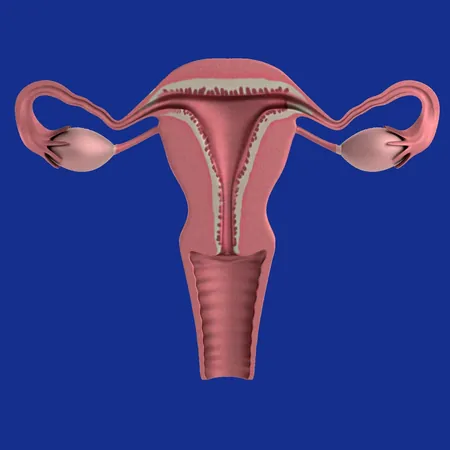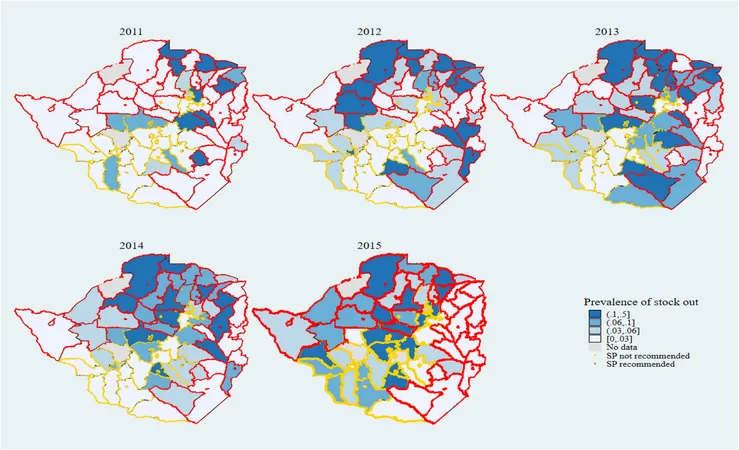
Meet Luca, the Ancient Progenitor of Life on Earth—Is Extraterrestrial Life Inevitable?
2025-01-19
Author: Jia
Introduction
For scientists, the origins of life stretch back not to legendary figures but to a microbial ancestor known as Luca. This single-celled organism, which thrived around 4.2 billion years ago, is believed to have played a pivotal role in the tapestry of life that we know today. Recent groundbreaking research from a team based in the UK has unveiled the astounding complexity of Luca and its implications for the existence of life, not just on Earth, but throughout the universe.
Luca's Historical Context
Luca, short for the Last Universal Common Ancestor, emerged during a time when Earth was nothing short of a hellish landscape. The planet was bombarded by meteorites and fraught with volcanoes, following a cosmic calamity that led to the creation of the moon. The harsh conditions of the Hadean eon coupled with Luca's evolutionary sophistication challenge long-held beliefs about the emergence of life. Contrary to the idea that life is a rare coincidence, this suggests that given the right circumstances, life may be an inevitable process—a phenomenon that could be widespread across the cosmos.
Darwinian Connections
The concept of Luca aligns with Darwinian evolutionary theory, illustrating that all living organisms descend from earlier forms in a vast tree of life. However, Luca represents a branching point from which all life forms—including eukarya (animals, plants, fungi), bacteria, and archaea—evolved. Interestingly, recent molecular phylogenetic analyses position Luca's existence much earlier than previously believed, pushing it back into the ancient realms of Earth’s prehistory.
Deciphering Luca's Characteristics
Determining the characteristics of such an old organism seems daunting, but scientists use molecular phylogenetics to piece together a rough idea of what Luca might have looked like. By comparing genetic code from modern organisms, researchers can infer the timing and nature of evolutionary splits, effectively constructing a 'molecular clock.' Thanks to advancements in genetic sequencing and research techniques, our understanding of Luca continues to evolve.
Luca's Environment and Metabolism
Luca's environment was an inhospitable water world, almost entirely covered in oceans, where it survived through fascinating metabolic processes. Researchers propose that Luca was likely a chemoautotroph, using simple molecules in its surroundings (like carbon dioxide and hydrogen) for sustenance. It might have lived near hydrothermal vents—fissures in the ocean floor rich in minerals—providing a unique habitat conducive to the emergence of life.
The Impact of Luca
The implications of Luca's existence extend beyond mere survival; this organism may have created an ecological niche for other microorganisms, forming a complex biosphere. Not only did this early ecosystem recycle essential compounds, but Luca also appears to have possessed a rudimentary immune system, indicating it faced viral threats—an intriguing revelation considering the simplicity of its form.
The Role of Viruses
Viruses might have played a significant role in shaping early life, as they can facilitate genetic exchange between organisms, promoting biodiversity. Some researchers now suggest that early life was interconnected in a web rather than a strict tree, with viral activity enhancing genetic variation and evolution.
Implications for Extraterrestrial Life
If Luca's lineage holds true, it raises tantalizing questions about life's prevalence elsewhere in the universe. The ongoing search for Earth-like planets has been promising; many astronomers believe they are not uncommon. While Luca's existence indicates that life could emerge given the right conditions, the specific traits that made early Earth conducive to life—such as adequate shielding from solar radiation and the presence of water—could also apply to other planets, including early Mars or Venus.
Caution and Future Research
Yet, it's essential to approach these findings with caution. While Luca's age and complexity challenge previous assumptions about life's rarity, the journey into the depths of our planet's early history is still ongoing. As scientists refine their methods and painstakingly analyze geological records, the picture of Luca and its world will likely become even clearer. Researchers remain optimistic that future studies will shed further light on the origins of life, not just on Earth but throughout the cosmos.
Conclusion
In conclusion, understanding Luca not only helps unravel the mysteries of our ancient past but also opens the door to exhilarating possibilities regarding extraterrestrial life. If life began on Earth as early as 4.2 billion years ago, who’s to say it hasn’t taken root on other planets waiting to be discovered? The universe may be more alive than we ever imagined!






 Brasil (PT)
Brasil (PT)
 Canada (EN)
Canada (EN)
 Chile (ES)
Chile (ES)
 Česko (CS)
Česko (CS)
 대한민국 (KO)
대한민국 (KO)
 España (ES)
España (ES)
 France (FR)
France (FR)
 Hong Kong (EN)
Hong Kong (EN)
 Italia (IT)
Italia (IT)
 日本 (JA)
日本 (JA)
 Magyarország (HU)
Magyarország (HU)
 Norge (NO)
Norge (NO)
 Polska (PL)
Polska (PL)
 Schweiz (DE)
Schweiz (DE)
 Singapore (EN)
Singapore (EN)
 Sverige (SV)
Sverige (SV)
 Suomi (FI)
Suomi (FI)
 Türkiye (TR)
Türkiye (TR)
 الإمارات العربية المتحدة (AR)
الإمارات العربية المتحدة (AR)